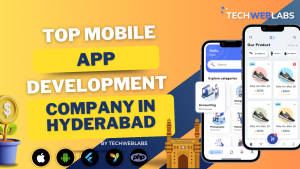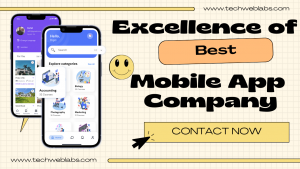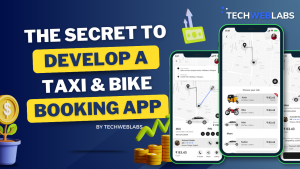How Much Does it Take to Build an App like Ola?
Introduction
The Ola app has revolutionized the way people travel and commute within cities. With its widespread popularity, Ola has become one of the leading players in the ride-hailing industry. In this article, we will explore the importance of ride-hailing apps in today’s transportation landscape and delve into the various aspects of the Ola app.

Overview of Ola App and its Popularity
Ola, founded in 2010, is an Indian ride-hailing platform that quickly gained traction due to its user-friendly interface and cost-effective services. Over the years, it has expanded its operations to multiple cities and countries, becoming a household name for convenient and reliable transportation.
Importance of Ride-Hailing Apps in the Modern Transportation Landscape
In today’s fast-paced world, ride-hailing apps have become an integral part of urban mobility. They offer a convenient and on-demand transportation solution, reducing the dependency on traditional taxis and making commuting hassle-free for users.
Understanding the Ola App
User App Features and Functionalities
The user app of Ola offers a plethora of features that make booking rides effortless and efficient:
Booking Rides
With just a few taps on their smartphones, users can easily book a ride. They can select the type of vehicle, specify the pickup location, and set the destination, making the entire process smooth and quick.
Real-Time Tracking
To ensure transparency and reliability, Ola provides real-time tracking of the assigned driver. Users can track the location of the approaching vehicle, giving them visibility and assurance of the pickup.
Fare Estimation
Ola offers fare estimates to users before they confirm the booking. This feature helps users plan their expenses in advance and provides transparency in fare calculations.
Payment Integration
The app offers various payment options, including credit/debit cards, digital wallets, and UPI, making transactions seamless and cashless. Users can pay for their rides conveniently with their preferred payment method.
Ride History and Ratings
The user app allows users to access their ride history, making it easy to keep track of past rides. Additionally, users can rate their ride experience, enabling Ola to maintain service quality and improve user satisfaction.
Driver App Features and Functionalities
The driver app plays a crucial role in connecting drivers with ride requests and ensuring a smooth ride experience:
Accepting Ride Requests
The driver app notifies drivers of available ride requests based on their availability and proximity to the pickup location. Drivers can accept or decline the request as per their convenience.
Navigation to Pickup Locations
To provide prompt and efficient service, the driver app offers real-time navigation, guiding drivers to the exact pickup point. This helps drivers reach users without any delay.
Completing Rides
Once the ride is complete, drivers can mark it as finished in the app, indicating that the ride has been successfully completed.
Earnings Tracking and Reviews
The app allows drivers to track their earnings and view user reviews and feedback. This feature helps drivers assess their performance and make improvements if necessary.
Factors Influencing Ola App Development Cost
Several factors contribute to the overall cost of developing an app like Ola:
App Features and Complexity
The number and complexity of features in the app directly impact the development cost. Advanced features may require more time and resources for implementation.
Platform (iOS, Android, or Both)
Developing the app for multiple platforms, such as iOS and Android, can increase the development cost compared to building it for a single platform.
Design and User Experience Considerations
Creating an intuitive and visually appealing design can add to the development cost. Investing in user experience design ensures that the app is user-friendly and engaging.
Location and Development Team Expertise
Development costs may vary based on the location of the development team and their expertise in building ride-hailing apps.
Third-Party Integrations
Integrating third-party services such as maps and payment gateways can add to the overall development cost. However, using established services can save time and effort in building these functionalities from scratch.
Testing and Quality Assurance
Thorough testing and quality assurance are essential for delivering a bug-free and reliable app. While testing adds to the development cost, it ensures the app’s smooth functioning.
Ola App Tech Stack
The Ola app’s technology stack comprises various tools and frameworks that ensure its seamless performance:
Programming Languages
The app’s front-end is typically developed using programming languages like Java for Android and Kotlin for iOS.
Backend Development
For back-end development, technologies like Node.js, Python, or Java are commonly used to handle server-side operations, manage databases, and process user requests.
Databases
Databases like MySQL, MongoDB, or Cassandra are employed for efficient data storage and retrieval, ensuring quick access to user information and ride details.
Real-Time Tracking using Google Maps API
To enable real-time tracking and navigation, the app integrates with the Google Maps API. This integration allows drivers and users to track the location of each other and plan their routes accordingly.
Payment Integration with Paytm, Braintree, etc.
To facilitate seamless and secure payments, Ola integrates with payment gateways like Paytm, Braintree, or other digital wallets.
Cloud Services
Cloud services like AWS, Google Cloud Platform, or Microsoft Azure provide scalability and flexibility, ensuring that the app can handle a large user base without any performance issues.
Push Notifications through Firebase Cloud Messaging (FCM) or Twilio
For real-time communication with users and drivers, push notifications are sent through services like Firebase Cloud Messaging or Twilio.
SMS Gateway Integration with Twilio or Nexmo
SMS gateways like Twilio or Nexmo are used for sending SMS notifications to users and drivers.

Comparison with Other Ride-Hailing Apps
Cost Comparison with Uber and Lyft
A cost comparison with other leading ride-hailing apps like Uber and Lyft can help understand the pricing structure and the affordability of Ola’s services.
Differentiating Features of Ola App
Exploring the unique features and offerings of the Ola app that set it apart from its competitors.
Ola App Development Process
The development process for an app like Ola involves several stages:
Ideation and Planning
The first step is to brainstorm and ideate the app’s concept, followed by planning the app’s features and functionalities.
Design and Wireframing
The design phase involves creating wireframes and prototypes that outline the app’s user interface and user experience.
Development and Coding
The actual development process includes coding and building the app’s front-end and back-end.
Testing and Quality Assurance
Thorough testing ensures that the app is free from bugs and performs as expected.
Deployment and Launch
The app is deployed to the app stores and launched for public use.
Benefits of Developing an App like Ola
Creating an app like Ola can offer various advantages:
Revenue Potential and Business Opportunities
Ride-hailing apps can generate significant revenue through commissions and service charges.
Improved Convenience for Users and Drivers
Users and drivers experience a higher level of convenience and ease in commuting.
Enhanced Customer Satisfaction and Loyalty
A well-designed app can lead to increased customer satisfaction and loyalty.
Impact on the Transportation Industry
Ride-hailing apps have disrupted the traditional transportation industry and reshaped urban mobility.
Challenges in Ola App Development
Developing a ride-hailing app comes with its own set of challenges:
Scalability and Handling Peak Demands
The app must be designed to handle a large user base and peak demands during busy hours.
Data Security and Privacy Concerns
Protecting user data and ensuring privacy are critical concerns.
Regulatory Compliance and Legal Considerations
Compliance with local regulations and legal requirements is essential.
User Acquisition and Retention
Attracting users and ensuring their retention is an ongoing challenge.
How TechWebLabs Helps Develop an App like Ola
TechWebLabs, a leading mobile app development company, offers expert services and solutions to create ride-hailing apps like Ola. Here’s how TechWebLabs can assist in developing a successful app:
1. Ideation and Conceptualization
TechWebLabs collaborates with clients to understand their vision and requirements. The team conducts in-depth research and analysis to conceptualize the app’s features and functionalities.
2. Design and User Experience
With a team of skilled designers, TechWebLabs ensures the app’s user interface is intuitive, visually appealing, and optimized for a seamless user experience.
3. App Development
The development team at TechWebLabs is well-versed in various programming languages and technologies, including Java, Kotlin, Swift, Node.js, Python, and more. They leverage their expertise to build robust and scalable mobile applications.
4. Real-Time Tracking Integration
TechWebLabs seamlessly integrates real-time tracking features using Google Maps API, allowing users and drivers to monitor each other’s locations during the ride.
5. Payment Gateway Integration
TechWebLabs facilitates smooth and secure payment transactions by integrating popular payment gateways like Paytm, Braintree, or other digital wallets.
6. Cloud Services Integration
To ensure the app’s scalability and performance, TechWebLabs leverages cloud services such as AWS, Google Cloud Platform, or Microsoft Azure for seamless data storage and retrieval.
7. Push Notifications and SMS Gateway Integration
TechWebLabs implements push notification services through Firebase Cloud Messaging (FCM) or Twilio to keep users and drivers informed about ride updates. Additionally, SMS gateway integration with Twilio or Nexmo enables timely communication with users via text messages.
8. Quality Assurance and Testing
TechWebLabs conducts rigorous testing and quality assurance to identify and rectify any issues before the app’s deployment, ensuring a bug-free and reliable application.
9. Ongoing Support and Maintenance
After the app’s launch, TechWebLabs provides continuous support and maintenance services to keep the app running smoothly and efficiently.
10. Client-Centric Approach
TechWebLabs focuses on building strong client relationships, understanding their specific needs, and delivering customized solutions that align with their business goals.
11. Cost-Effective Solutions
TechWebLabs offers competitive pricing without compromising on the quality of services, making it an ideal development partner for cost-conscious businesses.
By leveraging TechWebLabs’ expertise and experience, businesses can ensure a successful and seamless app development process, similar to the efficiency and convenience offered by the Ola app.
Conclusion
In conclusion, the development of an app like Ola requires careful planning, a robust tech stack, and a reliable development partner. By understanding the factors influencing development costs and the benefits of ride-hailing apps, businesses can capitalize on the opportunities presented by the growing transportation industry.


